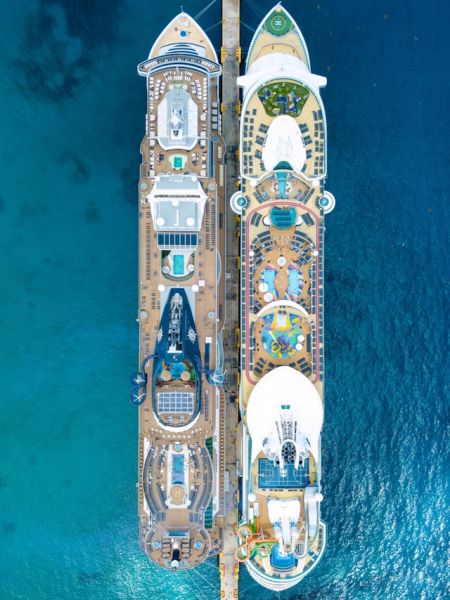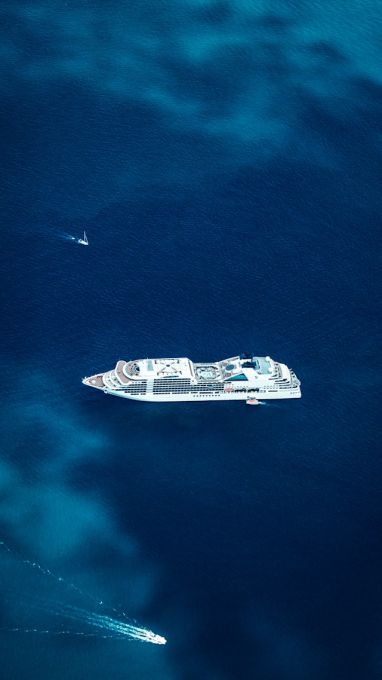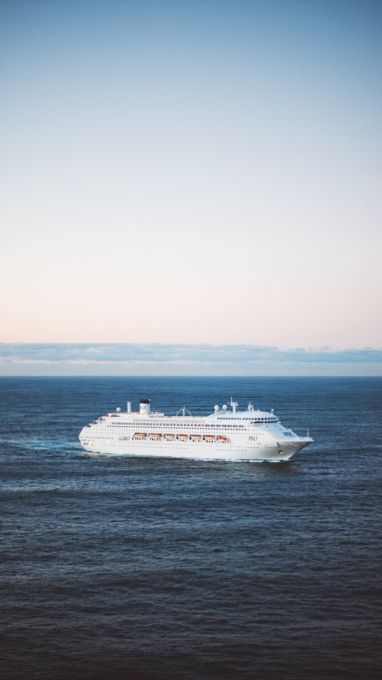The Liability of the Cruise Organizer
In 2017, 503,000 passengers chose to spend their holidays aboard a ship. Cruises now account for 21.3 million passengers, a 77% growth in ten years. Cruising has become a democratized tourism phenomenon in recent years, thus providing an opportunity for case law to define the scope of the cruise organizer’s liability.
Study
 The organizer’s liability may fall under two distinct legal regimes. While the Transport Code imposes a duty of care on maritime passenger carriers, the Tourism Code subjects the cruise organizer to strict liability. The duty of safety therefore remains central to both liability regimes.
The organizer’s liability may fall under two distinct legal regimes. While the Transport Code imposes a duty of care on maritime passenger carriers, the Tourism Code subjects the cruise organizer to strict liability. The duty of safety therefore remains central to both liability regimes.
Some authors would prefer that all safety obligations be strict liability since they involve the obligation to ensure the physical safety of others, in this case, cruise passengers. Evidently, this safety obligation translates into the need to prevent the co-contractor from suffering bodily harm. However, the cruise organizer is not merely a maritime passenger carrier.
Indeed, a cruise organizer does not limit their service to passenger transport. They generally offer, as part of the cruise organization, various tourist services such as organizing excursions, providing catering services, cabin accommodation…
As Professor BONASSIES reminds us, a cruise consists “of offering and providing to clients, referred to as ‘cruise passengers’, a primary maritime travel service, under specific conditions of comfort and enjoyment, a service generally accompanied by complementary services”.
The cruise ship is then no longer conceived as a vessel solely for transport operations, but as a floating hotel with all the infrastructures on board to offer tourist services to cruise passengers.
The evolution of cruise ships, offering ever more activities and services, has certainly allowed for the perfectly justified application of the provisions of the Tourism Code to the cruise organizer.
In a widely commented ruling of December 9, 2015, the Court of Cassation thus imposed strict liability on cruise organizers, stemming from the specific provisions of the Tourism Code. In its grounds, the Court of Cassation recalls that “the organizer of a cruise that exhibits the characteristics of a package tour, within the meaning of Article L. 211-2 of the same code, falls under the regime of strict liability established by Article L. 211-16 of the Tourism Code, derived from Law No. 92-645 of July 13, 1992, which sets the conditions for exercising activities related to the organization and sale of trips or stays, and which transposed Council Directive 90/314/EEC of June 13, 1990, concerning package travel, package holidays and package tours, into domestic law”.
The High Court ruled “having found that Costa Crociere had organized not only the transport of passengers but all operations comprising the cruise, including all complementary tourist services offered in this regard, the Court of Appeal rightly concluded that, since the combination of these operations constituted a package tour, within the meaning of the aforementioned Article L. 211-2, Costa Crociere, in its capacity as a travel organizer, was strictly liable for the proper performance of the obligations resulting from the contract concluded by Ms. X.”
The Court of Cassation has established the now well-entrenched principle of strict liability for the cruise organizer selling package tours. However, the qualification of a package tour falls under casuistry and the sovereign power of appreciation of the lower court judges. In the absence of a package tour, the cruise organizer’s liability remains based on the specific provisions of the Transport Code.
The Qualification of a Package Tour: a Decisive Criterion for the Cruise Organizer’s Strict Liability
 The concept of “package tour” is precisely defined by the provisions of Article L. 211-2 of the Tourism Code, the wording of which was significantly amended by the Ordinance of December 20, 2017, transposing Directive No. 2015/2302 of November 25, 2015, on package travel and linked travel arrangements. The definition of package travel is thus broadened: “A package tour constitutes a combination of at least two different types of travel services for the purpose of the same trip or holiday stay, exceeding twenty-four hours or including an overnight stay, if:
The concept of “package tour” is precisely defined by the provisions of Article L. 211-2 of the Tourism Code, the wording of which was significantly amended by the Ordinance of December 20, 2017, transposing Directive No. 2015/2302 of November 25, 2015, on package travel and linked travel arrangements. The definition of package travel is thus broadened: “A package tour constitutes a combination of at least two different types of travel services for the purpose of the same trip or holiday stay, exceeding twenty-four hours or including an overnight stay, if:
- These services are combined by a single professional, including at the traveler’s request or according to their choice, before a single contract including all these services is concluded;
- Regardless of the possible conclusion of separate contracts with individual travel service providers, these services are:
- a) Either purchased from a single point of sale and chosen before the traveler agrees to pay;
- b) Or offered, sold, or invoiced at an all-inclusive price or a total price;
- c) Or advertised or sold under the designation of “package” or a similar designation;
- d) Or combined after the conclusion of a contract by which a professional authorizes the traveler to choose from a selection of different types of travel services;
- e) Or purchased from distinct professionals through linked online booking procedures, when the traveler’s name, payment details, and email address are transmitted by the professional with whom the first contract is concluded to one or more other professionals and when a contract with the latter is concluded no later than twenty-four hours after the confirmation of the first travel service booking.
Case law has already had the opportunity to clarify the scope of liability for the cruise organizer selling package tours. In a notable ruling of April 27, 2017, the Aix-en-Provence Court of Appeal thus engaged in an extensive interpretation of the concept of a package tour in order to establish the strict liability of cruise organizers. In this case, the Court ruled that “the service offered by the cruise organizer was not limited to a simple passenger transport service but included a set of complementary tourist services, notably full board with cabin accommodation and meal provision, but also, as evidenced by the promotional cruise offer produced in the proceedings, the organization of entertainment and services (gymnastics) offered on the ship as well as the prior scheduling of excursions, regardless of whether they were optional and subject to separate billing from the package”.
In this ruling, the Aix-en-Provence Court of Appeal also recalls that “the implementation of this liability against the cruise organizer is not subject to the existence of a contractual link between the latter and the buyer”. In this case, the cruise buyer had sued the travel agent and the cruise organizer. While the liability of the former towards its co-contractor faced no serious difficulty, the liability of the cruise organizer was less obvious, both due to the necessary qualification of a package tour and the absence of a contractual link with the cruise buyer.
By issuing joint and several judgments against the cruise organizer and the travel agent, the Aix-en-Provence Court of Appeal offers the cruise passenger a favorable legal regime, assuring them of obtaining compensation for the damages they have suffered.
Absence of a Package Tour Does not Exclude the Cruise Organizer’s Liability
 In the absence of a package tour within the meaning of Article L. 211-2 of the Tourism Code, the liability of a cruise organizer remains based on the provisions of Articles L. 5421-2 and L. 5421-3 of the Transport Code.
In the absence of a package tour within the meaning of Article L. 211-2 of the Tourism Code, the liability of a cruise organizer remains based on the provisions of Articles L. 5421-2 and L. 5421-3 of the Transport Code.
The legal regime applicable to individual passenger accidents is that of proven fault. Article L. 5421-2 of the Transport Code indeed states that “the carrier is obliged to put and keep the ship in a seaworthy condition, properly manned, equipped, and supplied for the voyage in question, and to exercise all due diligence to ensure the safety of passengers. They are responsible for damages due to delay resulting from non-compliance with the provisions of the preceding paragraph or from the commercial fault of their agents”.
Article L. 5421-3 of the same code, for its part, states that “bodily injury occurring during the voyage, or during embarkation or disembarkation operations, either at the ports of departure or destination, or at ports of call, gives rise to compensation from the carrier, if it is established that they have contravened the obligations prescribed by the provisions of Article L. 5421-2 or that a fault was committed by themselves or one of their agents”. It follows from a combined reading of these two texts that, concerning an individual passenger accident, the safety obligation incumbent upon the carrier must be considered a duty of care. This liability regime, which benefits the maritime passenger carrier, places the burden of proving the carrier’s fault on the victim.
For example, in a ruling of January 20, 2011, the Nancy Court of Appeal ordered a cruise organizer to compensate for the moral damage suffered by a passenger of a ship that sank off the Greek coast. In this case, the lower court judges noted the existence of a navigation error that caused the shipwreck and the absence of suitable rescue equipment.
It would seem, however, that the judicial debate is crystallizing around the concept of a package tour. While the cruise passenger will develop arguments to qualify the existence of a package tour, the cruise organizer will try to escape it by cloaking themselves in their capacity as a maritime passenger carrier.
In any event, the construction of the cruise organizer’s liability regime is marked by the prevalence of tourism law over maritime law. The application of the provisions of the Tourism Code, although unusual for a contract relating to a ship, finds a dual justification.
On the one hand, the organization of a cruise is, in fact, a combination of contracts covering maritime transport, accommodation, catering, cultural, and even sports activities. This range of services corresponds exactly to the definition of a package tour.
On the other hand, judges find in the provisions of the Tourism Code a legal regime of strict liability favorable to the cruise passenger. This protection is all the more effective as the strict liability provided by the Tourism Code applies to both the travel agency and the cruise organizer.
The concept of a package tour thus allows judges to apply the protective provisions of the Tourism Code to the cruise passenger, who remains a consumer, to the exclusion of the specific provisions of the Athens Convention of December 13, 1974, and the Transport Code relating to maritime passenger transport.
